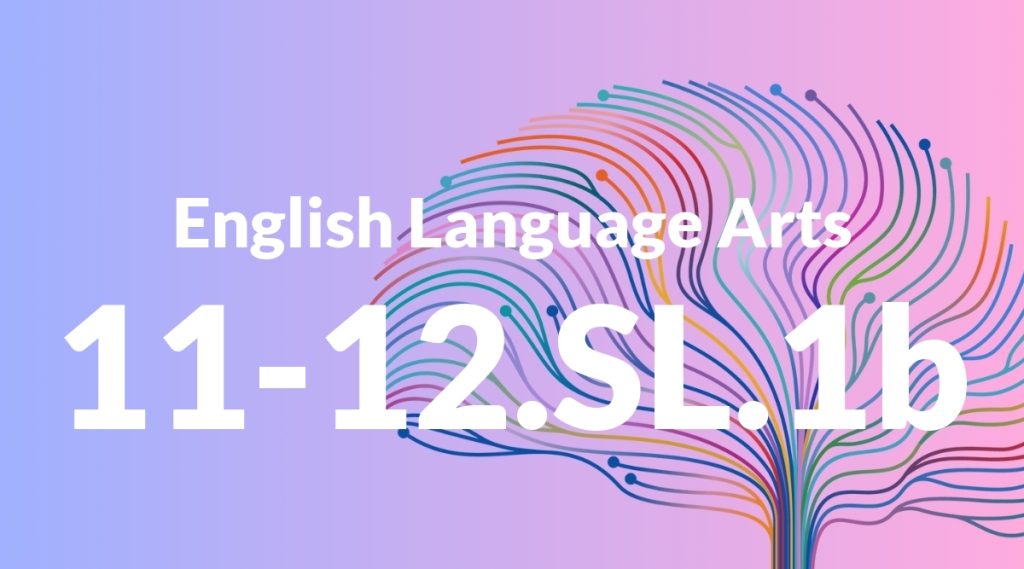Standard: 11-12.SL.1b – Work with peers to promote civil, democratic discussions and decision-making, set clear goals and deadlines, and establish individual roles as needed.
Grade level: Grade 11-12
Subject: English Language Arts
Domain: Speaking & Listening
Teacher Overview
This standard emphasizes the importance of collaborative skills in a democratic setting. It prepares students to engage in civil discourse, make collective decisions, and manage group dynamics effectively. These skills are crucial for their future roles in society and the workforce. Students should already know how to communicate respectfully, understand the basics of group dynamics, and have some experience in collaborative work.
Mastering this standard will enable students to take on leadership roles, manage group projects effectively, and contribute meaningfully to team efforts in both academic and real-world settings.
Common Misconception 1
Some students may believe that one person should dominate the discussion to speed up decision-making. This is incorrect because effective collaboration requires balanced participation from all group members.
Intervention 1
To address this misconception, use structured activities that allocate speaking time evenly among participants and assign roles to ensure active participation from everyone.
Common Misconception 2
Another common misconception is that setting goals and deadlines is unnecessary. Without these, discussions can become unfocused and unproductive.
Intervention 2
Introduce project management tools and techniques, such as SMART goals and time management strategies, to demonstrate the benefits of structured planning.
Prerequisite Knowledge
Students should have basic communication skills, an understanding of respectful dialogue, and prior experience working in groups.
Subsequent Knowledge
Students will develop advanced leadership skills, the ability to mediate conflicts, and proficiency in organizing and managing group tasks effectively.
Instructional Activities
- Role-playing exercises to practice democratic discussions
- Group projects with assigned roles and deadlines
- Class debates on current events
- Workshops on goal-setting and time management
- Peer review sessions to provide constructive feedback




